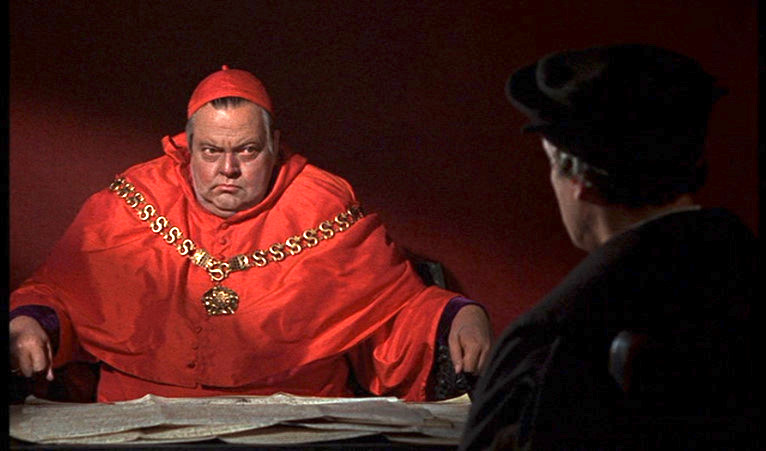Though there seems to be a lull in the sexual sin scandal in the Church, there is no doubt this hydra-headed monster will rise again whether in the guise of the meeting in Rome at the beginning of next year, in the headlines of The New York Times or in the next State’s Attorney General report.
Whole forests full of trees will die to supply the paper that will be used to explain how we got here and, hopefully, how we get out of here.
But although using popular culture, especially Hollywood movies, as beacons of moral navigation is peccable, there are a couple of excellent examples of movie industry product that showcase what happens when men of God begin to worship at the altar of pragmatism.
In the pre-video/cable/DVD/streaming days, the only way I was able to see old movies was when they would appear on television. So, it was with great anticipation that I prepared to watch the 1948 film “Joan of Arc” when it cycled into the television rotation a couple of decades later.
It was a costume drama, check; it was about medieval warfare with knights in armor, check. I settled in to be taken away to the battlefields of France.
I knew Joan of Arc was a saint and that she fought the English. That was about the extent of my knowledge. It’s like saying “War and Peace” is a novel about Russia. Upon that first viewing, between commercials for used cars and cigarettes, my preteen self was a little disappointed.
The film was more about Joan’s internal life and the subsequent consequences of it than cool action scenes with swords banging against shields and armored challengers charging lines of pike-wielding foot soldiers.
My ignorance of the real story of Joan was no match for understanding the last part of the film where Joan is on trial. I was confused. She was being judged by men who were dressed as bishops and cardinals.
They were obviously the villains of the piece, but I couldn’t figure out why Catholic bishops were being so cruel to a nice Catholic girl … even if she had led an army and routed their armies in a most embarrassing fashion. To further my consternation, I knew, even when I saw this film for the first time, that Joan of Arc was St. Joan of Arc.

Time, that great incubator, allowed me to revisit this film and the life of St. Joan of Arc with a little less ignorance and the film became more profound to me. In light of today, it is depressingly current. Not that anyone is getting fastened to and then burned at a stake.
But Catholic churchmen, men who are supposed to have God first and foremost in their hearts and minds, make deals. Time also lets the Church fix things, as the same Church that condemned Joan in 1431 canonized her in 1920.
Keeping with the theme of compromised deal-making bishops, I was a little older when I first saw “A Man For All Seasons” and was better “tutored” to understand what was going on in the plot.
In the film, Orson Welles played Cardinal Wolsey, a man who attached himself to the hip of King Henry VIII and rose in stature, wealth, and influence accordingly. He was the consummate deal-maker both in the fictionalized version of Welles’ imagination and from all historical accounts.
But he could not get Thomas Moore to budge and he could not, try as he might, get the most underexamined character in this tragedy to move an inch. The bishop Wolsey molded himself to whatever situation benefited himself.
But Catherine of Aragon knew exactly who she was. She was the lawful, and according to Church teaching, only wife Henry ever had. Because Catherine took her vows and her marriage seriously and refused to compromise despite the pleadings of the deal-making Wolsey, he was detached from the regal hip and found himself under arrest and awaiting trial.
The trial never took place because Wolsey died before he could be found guilty and probably executed. In the film, a dying cardinal played brilliantly by Orson Welles, laments his fall with the real Wolsey’s own words, “Had I but served God as diligently as I have served the king, he would not have given me over in my grey hairs.”
Sober words of warning for the deal-maker in all of us.
Robert Brennan is a weekly columnist for Angelus online and in print. He has written for many Catholic publications, including National Catholic Register and Our Sunday Visitor. He spent 25 years as a television writer, and is currently the Director of Communications for the Salvation Army California South Division.
SPECIAL OFFER! 44 issues of Angelus for just $9.95! Get the finest in Catholic journalism with first-rate analysis of the events and trends shaping the Church and the world, plus the practical advice from the world’s best spiritual writers on prayer and Catholic living, along with great features about Catholic life in Los Angeles. Subscribe now!

